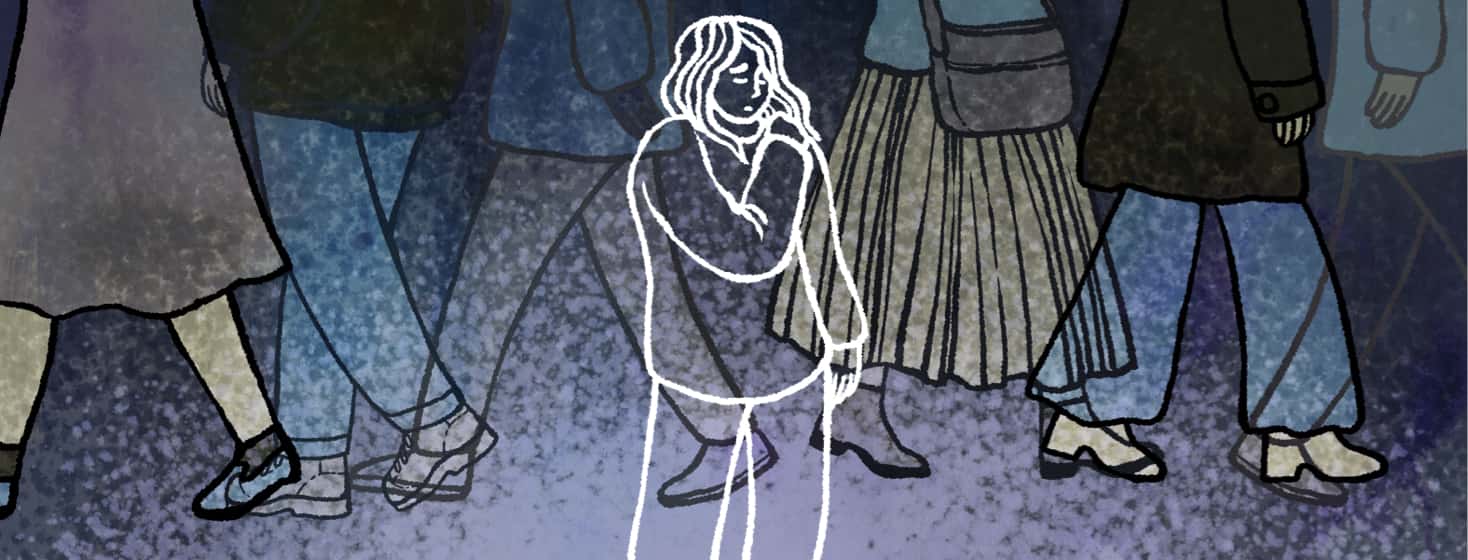What Does It Mean to Be Invisible?
What does it mean to be invisible? I have been thinking about this concept ever since I was introduced to the term "invisible illness" over 2 years ago.
The definition of "invisible" is probably as straightforward as it gets. I think we would all agree that when we think of something "invisible" we instinctively understand that it is something that is not perceptible to the eye.
It does not mean that it is nonexistent.
Being believed about invisible conditions
The interesting thing about "invisibility," for me, is that it can easily become subjective based on each individual's reality. That means that it can become something that may or may not be believed.
If I told you that I feel depressed, lonely, and hopeless, as though I wake up every day seeing nothing but darkness ahead, would you believe me? If I told you that I had a panic attack yesterday that left me feeling as though I was drowning out of water, would you believe me?
What if I told you that I suffer from daily migraines that bring me to my knees and leave me clouded and incapacitated? Would you believe me?
Now, can you spot what all of these ailments have in common? They are all invisible.
Why are some conditions more believed than others?
Most days, I’m probably the first person to step in to defend people that are unfamiliar with narcolepsy. It’s easy to feel angry and frustrated when you speak to someone who is unaware of something that defines your entire existence. It’s as though their unfamiliarity with our pain renders it nonexistent, but that’s because, to them, it is.
However, when I began to ask myself certain questions, I started to feel that this isn’t quite as simple as we believe. Why is it that I can say to someone that I have a horrible headache and no one will question it, and yet when I say that I feel extremely tired (because of my narcolepsy) people look doubtful and say I’m exaggerating?
Why is it that I can complain of a stomach problem or stress and everyone readily accepts it as truth, yet when I react in an irritated manner or forget the simplest things, people believe that I am using my condition as an excuse?
Narcolepsy is an invisible, misunderstood chronic illness
I think I have finally realised what the answers to these questions are.
As invisibility is a subjective term, it allows people to be selective. If something doesn’t have a physical manifestation in our world (for example, a religious entity) it’s entirely up to each person to decide whether or not they believe it is real or not.
The same goes for narcolepsy. Because it is an invisible illness, people have the power to choose whether or not they believe it exists.
This is why I sometimes go back and forth between being understanding and tolerant and feeling hurt and betrayed when people don’t understand my narcolepsy. The thing is, whether or not something is invisible shouldn’t actually matter at all.
Our words should be enough to be believed
At the end of the day — excluding strangers, of course — telling someone you love that something is real to you should be enough for them to believe it’s real.
This is why I no longer believe that "invisibility" should be used as an excuse for people to act as though something doesn’t exist. There are so many things in this world that are invisible but that everyone acknowledges exists. Our words should be enough.
So from now on, if someone claims to not understand my condition because they can’t see it, I choose to no longer see them. Now it’s their turn to be "invisible."

Join the conversation